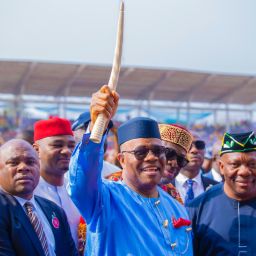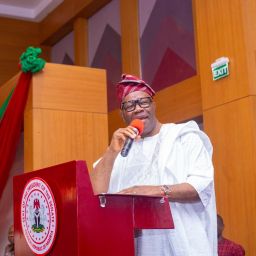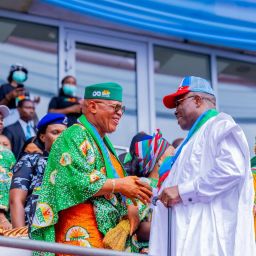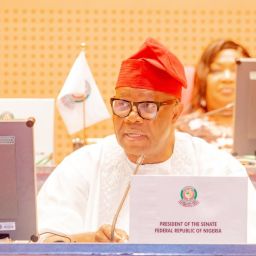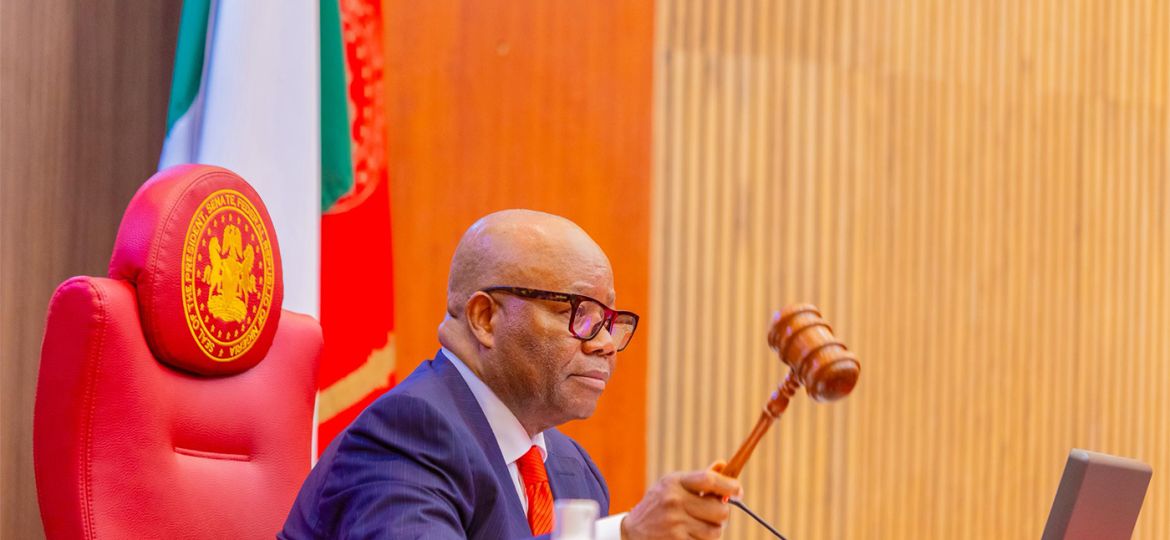
When Senator Godswill Obot Akpabio was elected President of Nigeria’s 10th Senate on June 13, 2023, he stepped into a role that demands not just political skill but the ability to unite a diverse and often divided chamber. As the presiding officer of the National Assembly, Akpabio has quickly demonstrated the courage, vision, and statesmanship needed to navigate Nigeria’s complex legislative terrain.
Akpabio’s election as Senate President was a culmination of years of experience in governance, lawmaking, and national service. Having served as Governor of Akwa Ibom State (2007–2015), Minority Leader of the Senate (2015–2018), and Minister of Niger Delta Affairs (2019–2022), Akpabio came into the position with a deep understanding of Nigeria’s political dynamics and an impressive record of public service. His rise to this key leadership post reflected both his political dexterity and the broad trust he commands among his colleagues.
Since assuming office, Akpabio has set a clear tone: the 10th Senate will be a Senate of progress, inclusion, and national interest. Under his leadership, the Senate has prioritized bills and motions aimed at improving the economy, enhancing national security, strengthening institutions, and addressing social issues. Akpabio has made it a point to emphasize legislative independence, while also fostering a cooperative relationship with the executive arm; a delicate balancing act that is vital for Nigeria’s democracy.
A notable hallmark of Akpabio’s leadership is his commitment to unity. In a Senate made up of multiple parties, regional blocs, and sometimes competing interests, Akpabio has worked to build bridges, encouraging dialogue and consensus across party lines. His approach has helped lower political tensions and allowed the Senate to focus on its core duties of lawmaking, oversight, and representation.
One of the Senate’s early achievements under Akpabio’s watch was the swift screening and confirmation of ministerial nominees, a process that helped set the tone for a smooth transition under the new administration. The Senate has also moved on critical legislation such as the Student Loan Bill, designed to expand access to higher education for millions of young Nigerians, and reforms in the oil and gas sector aimed at attracting investment and improving transparency.
Akpabio has consistently advocated for reforms that strengthen Nigeria’s federal system, promote fiscal responsibility, and deliver tangible benefits to ordinary citizens. He understands the importance of legislative activism in addressing Nigeria’s pressing challenges, from unemployment and poverty to insecurity and infrastructure gaps.
As he put it in a recent plenary address: “The Senate must be the conscience of the nation, not just an arm of government. We owe it to Nigerians to rise above narrow interests and serve the greater good.”
Beyond his legislative agenda, Akpabio’s leadership style has earned him respect. Known for his charisma and oratory, he combines firmness with diplomacy, ensuring that debates are robust but respectful. His ability to listen, mediate, and inspire trust has been instrumental in steering the Senate through complex issues.
As Nigeria stands at a critical crossroads, Akpabio’s role at the helm of the Senate could prove pivotal. His courage to confront difficult issues and his vision for a more united, prosperous Nigeria have positioned him as one of the most influential political figures of his generation. For many observers, his leadership in the 10th Senate is not just about managing a legislative chamber, but about shaping the direction of the country itself.
With Akpabio at the helm, Nigerians are watching with cautious optimism, hoping that the Senate will continue to be a platform for progress, reform, and national renewal; a place where the aspirations of the people can truly find a voice.


